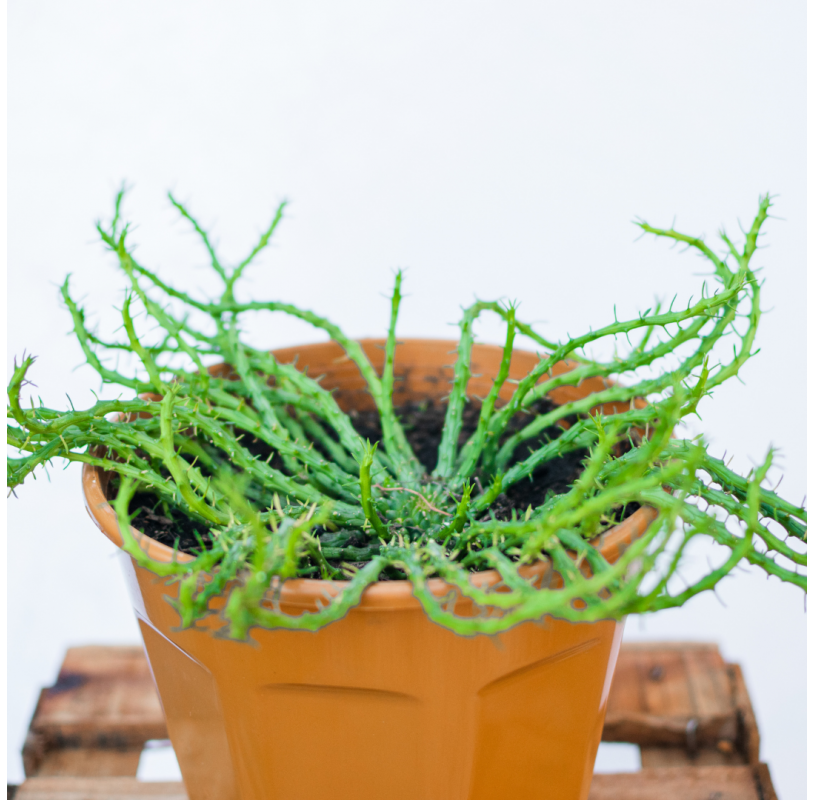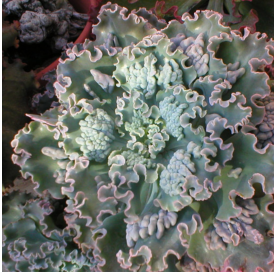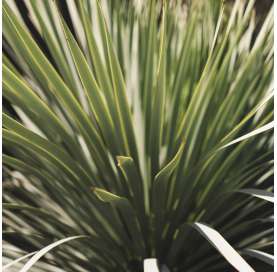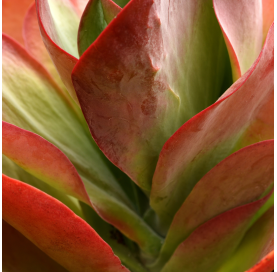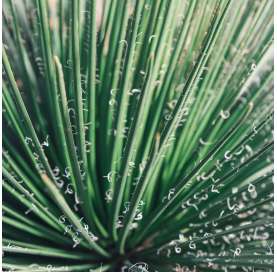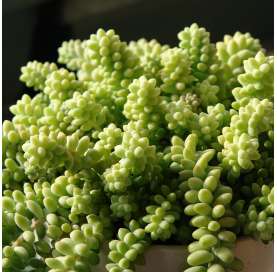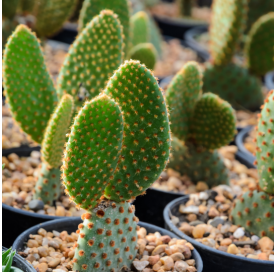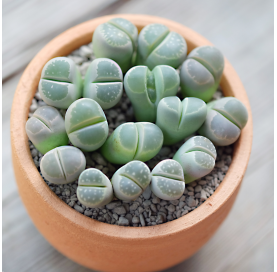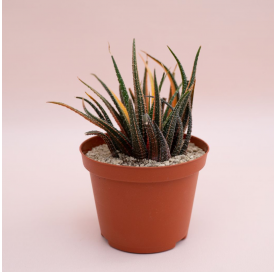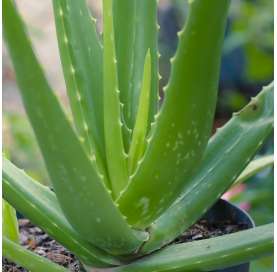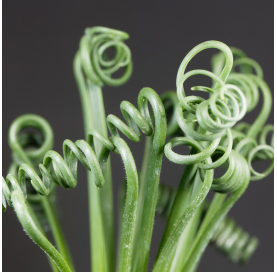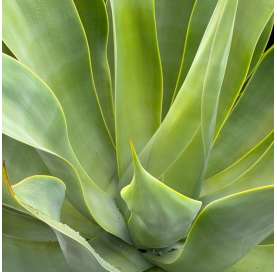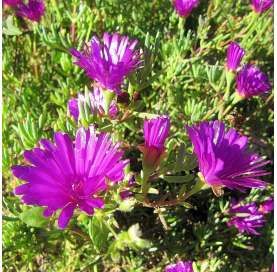Euphorbia flanaganii
Euphorbia flanaganii, also known as "Medusa's head," is a South African native succulent with a unique appearance due to its thick central body and radiating stems. It is easy to care for, requiring bright light, moderate watering, and protection from cold. Its sap is toxic and should be handled with care.
 Encrypted payments for greater security
Encrypted payments for greater security
To reduce the plant's time in transit, shipments are made from Monday to Wednesday.


Shipping only to mainland Spain and mainland Portugal
Euphorbia flanaganii
Description:
- Euphorbia flanaganii is a low-growing succulent with a distinctive "Medusa's head" appearance.
- It features a thick central body (caudex) from which numerous slender stems radiate outward.
- The stems are bright green and may develop small additional offshoots.
- It produces small yellow flowers (cyathia) at the tips of the stems during its growing season.
Origin:
- Native to South Africa, particularly in the dry and warm regions of the Eastern Cape and Kwazulu-Natal.
History:
- The species name, flanaganii, honors botanist Henry George Flanagan, who made significant contributions to the study of South African flora.
- This plant has been admired for its resilience and exotic beauty, making it a favorite among succulent collectors.
Fun Fact:
- Euphorbia flanaganii belongs to the Euphorbiaceae family, which includes many plants with milky latex sap. This sap is toxic and can irritate the skin and eyes, so handle it carefully.
- Its nickname, "Medusa’s head cactus," comes from its resemblance to the mythical creature Medusa’s hair.
Watering:
- Spring-Summer: Water moderately, allowing the soil to dry out completely between waterings. Typically, every 10-15 days is sufficient.
- Autumn-Winter: Drastically reduce watering to once a month or less.
- Avoid water pooling at the base, as it is prone to root rot.
Pruning:
- Regular pruning is not necessary. If a stem dries out or becomes damaged, it can be carefully removed using gloves to avoid contact with the toxic sap.
Care:
- Light: Prefers bright light, ideally filtered sunlight. It can tolerate direct sunlight but excessive exposure may scorch its stems.
- Soil: Requires well-draining soil, such as a cactus and succulent mix. Adding sand or perlite improves drainage.
- Fertilization: During the growing season (spring and summer), apply a diluted liquid fertilizer specifically for succulents every 4-6 weeks.
- Temperature: Thrives in warm temperatures but should be protected from extreme cold (below 50°F/10°C). It is not frost-hardy.
- Pests: May be affected by mealybugs or spider mites. Inspect regularly and treat with appropriate insecticides if needed.
- Repotting: Repot every 2-3 years or as needed, preferably in early spring.
Euphorbia flanaganii is perfect for succulent collections due to its unique form and easy maintenance. It requires minimal care while adding an exotic touch to any space.
Data sheet
- Name
- Euphorbia flanaganii
- Origen
- Sudafrica
- Height
- 5 to 15 cm
- Colour
- Light green, with a fresh and vibrant tone.
- Flowering
- Blooms in summer, producing small yellow flowers at the tips of the stems.
- Location
- Prefers indirect sunlight or partial shade in hot climates.
- Irrigation
- Moderate watering, allowing the soil to dry completely between waterings.
- Applications
- Popular in succulent collections and xerophytic gardens for its exotic and unique appearance.
- Note
- The sap is toxic and can cause skin or eye irritation. Use gloves when handling the plant.
12 other products in the same category:
-
Echeveria Verrugas€6.00
-
Yucca gloriosa variegata€19.00
-
Kalanchoe luciae€0.00
-
-
-
Puntia microdasys€6.00
-
Lithops - Living Stones€5.80
-
Haworthiopsis attenuata€0.00
-
Aloe vera€10.50
-
-
Agave attenuata€13.00
-
Lampranthus roseus.€2.20

 English
English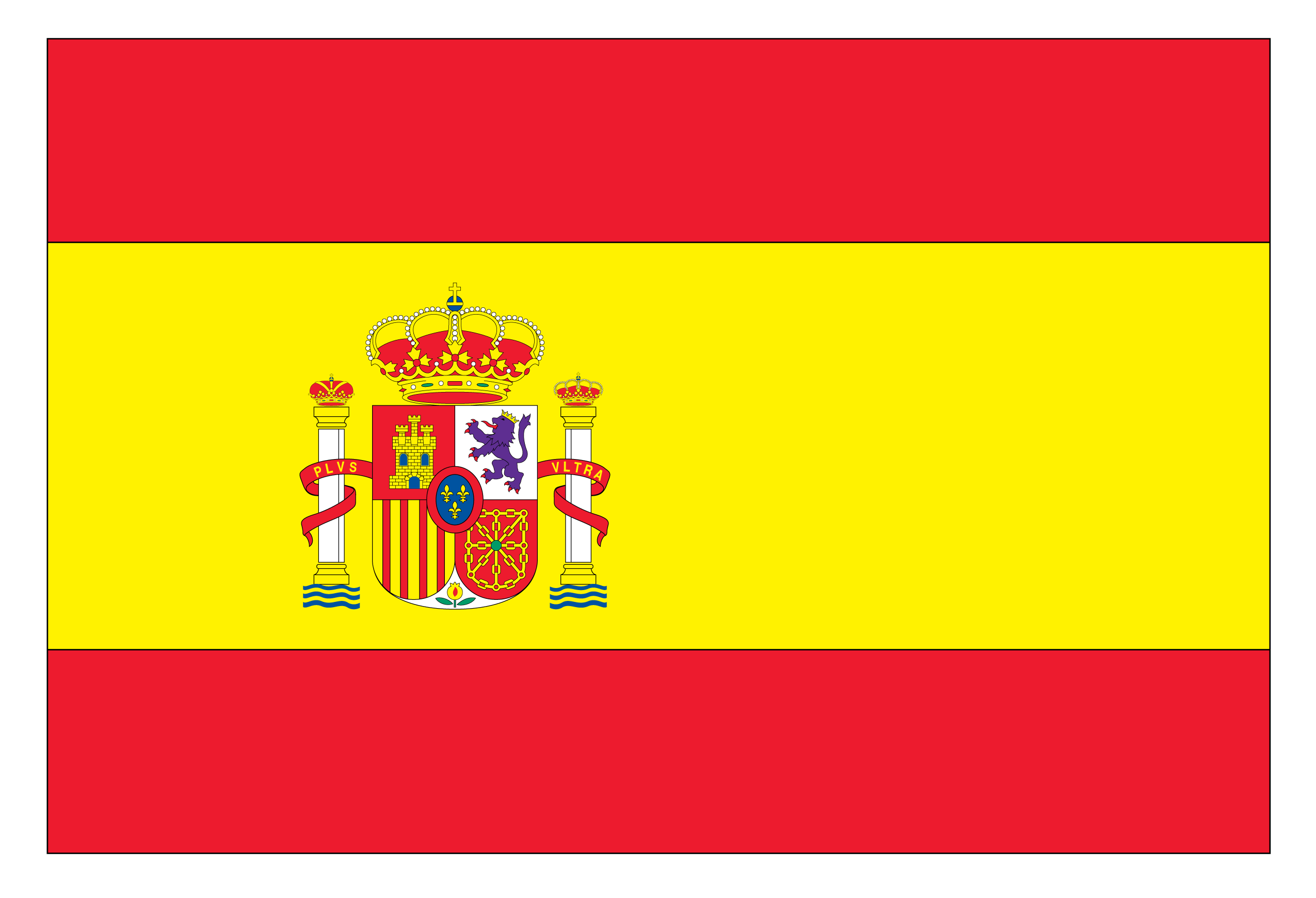 Spanish
Spanish